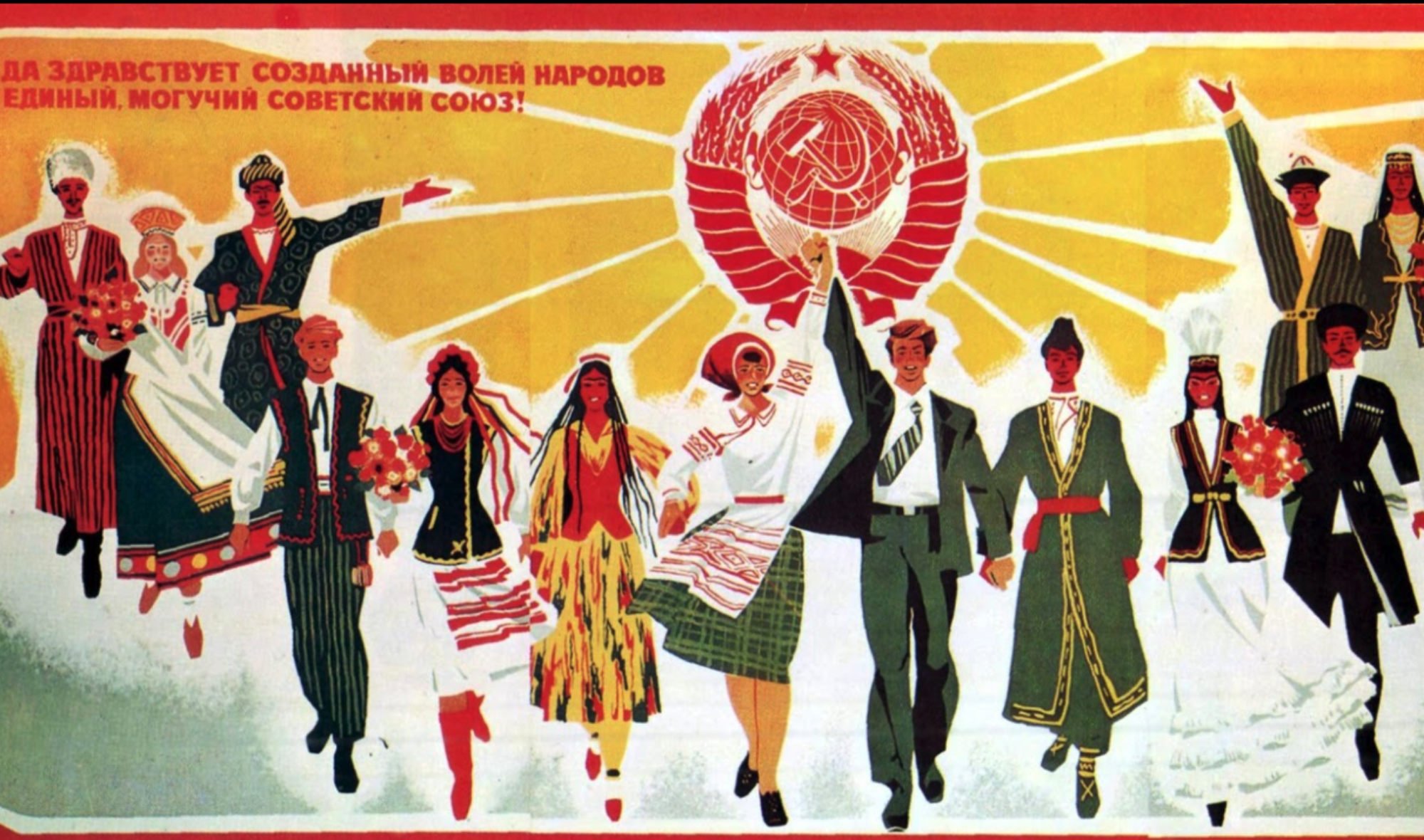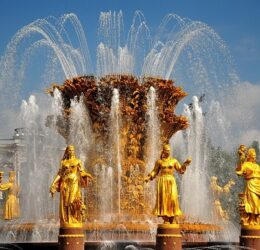I found the influence the Soviet Union had on the music of different nationalities of its member states to be very interesting in “National in Form, Socialist in Content,” especially when Frolova-Walker compares this to the relatively uninterested stance taken by the Russian Empire who for the most part (with exceptions in Ukraine and Finland) did not interfere with language and religion of its inhabitants incorporated into the empire. Frolova-Walker states that “Constructing a national musical culture
was, like the building of a gigantic dam, a matter of concern for the whole
country” (Frolova-Walker, 336). Does this large Soviet impact on national music make the Soviets hypocritical and violate the self-determination ideals of Soviet Nationalities Policy? Does it aid or hinder the Soviets in their creation and modification of the nation art?
The article discusses the Russification imposed onto the Soviet nationalities. In my opinion, the focus on opera seems like a popular Russian art form nationalities were subjected to create. The article reads “Since musical nationalism in the Soviet republics was dependent on the model of nineteenth-century Russia, these states were expected to inaugurate their era of national art music with opera” (Frolova-Walker, 339). Furthermore, with drawing inspiration from western art being off limits, these nationalities seemed to have been forced to draw from Russian art. However, it is explained that many of the the urban elites and others in theses Soviet Nationalities believed the pathway to modernization and westernization was through Russian culture. The example of Azerbaijan is used. The article explains the view of workers in Azerbaijan, stating “the workers of the oil industry and the railways suddenly developed a vigorous appetite for ‘real opera’: ‘We need new Azerbaijani operas,’ they wrote, along with such slogans as ‘Cultured modern opera or nothing,’ and even ‘Ban the old mugam opera’ and ‘Turk opera must go, along with the Arabic alphabet and the yashmak [veil]!'” (Frolova-Walker, 340). So, it appears that Russification while being mandatory was not always despised, and in this case welcomed. In your opinion, does Russification seem like more of a choice or obligation? What effect does this Russification have on the Art in the Soviet Union, and in your opinion does it benefit or negatively effect the Soviet Union as a whole?
The constraints imposed upon composers was an interesting piece of this article. Stalin had created the outline of what soviet Opera would be. The article states
“Stalin’s speech on opera emphasized three points: the subject matter was to be socialist, a realist musical language bearing the imprint of its national origins was to be adopted, and a new breed of hero was to be drawn from contemporary Soviet Life… ‘Our new operas must above all include these four elements: Soviet subject matter, narodnost’ [“nationality,” or “people-ness”], realism, and the mastery of symphonic development.'”
(Frolova-Walker, 363)
However these constraints proved difficult for many artist to abide by. The article states that ” too much of the national element could be criticized as bourgeois nationalism, too much realism was bourgeois naturalism, and too much symphonic development was bourgeois formalism”(Frolova-Walker, 363). It is explained that these constraints created an art which “was to be familiar in form and anodyne in content” (Frolova-Walker, 368). Do these restrictions hinder development of Soviet art? Does it aid the Soviets by creating conformity between these nationalities? If both, does one outcome outweigh the other?

